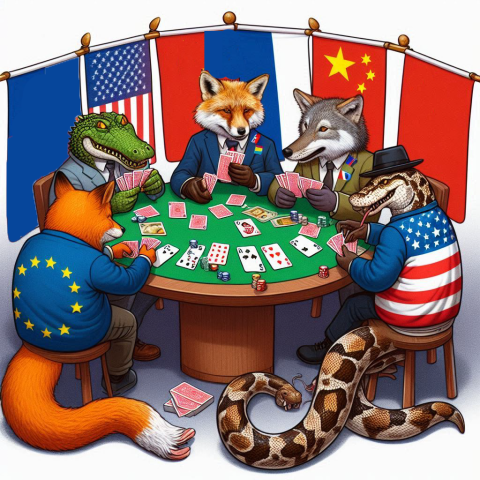After being betrayed by my most trusted friend, I discovered that worse than the theft of my pension was the psychological toll it took upon me. I developed serious trust issues, which, despite my best efforts, began to hold me back.
The experience stifled my ability to move forward and manifest my dreams. For we are a social species. Our greatest accomplishments are collective. The whole is greater than the sum of the parts, and trust is the glue that binds it all together.
But as you age, you learn that reality has teeth. Sooner or later, you realise there are sharks in the water. And that knowledge can cripple the formation of great teams.
Perhaps that’s why young people often achieve so much, so fast. Untouched by the full weight of the world’s betrayals, they still believe. They trust their friends, teammates, and collaborators. They give freely of their time and energy, fueled by idealism and loyalty. That kind of trust moves mountains, launches revolutions, lifts entire communities.
Without trust, all of this falls apart. Progress turns sluggish. The spark dims, and we can only move feebly forward.
This might explain why followers of Christianity, Judaism, Islam, and other religions, can flourish. It must be a powerful thing—to walk into any city on earth and find a tribe that will welcome you, where loyalty is part of the code. The same goes for strong family dynasties, where loyalty is etched in from birth.
Consider the United States. In its early days, it was a fledgling collective built on a shared vision. Everyone felt part of something larger, working together towards a common dream. That unity and shared purpose led to unparalleled productivity, innovation, and growth.
But corruption crept in. The trust that once bound people together withered. The US has become less of a tribe, more of a mob.
Those left without a tribe are at a brutal disadvantage. To belong is to survive—and often, to succeed.
But tribes, by nature, tend to draw borders. Eventually, they go to war.
So if we truly want to unlock the highest levels of human creativity and innovation, the answer isn’t tribes—it’s justice.
Imagine a world where human law with a strong code of conduct is so just, fair, and universal that trust comes easily and belonging to a tribe is no longer necessary?
What could we achieve?

